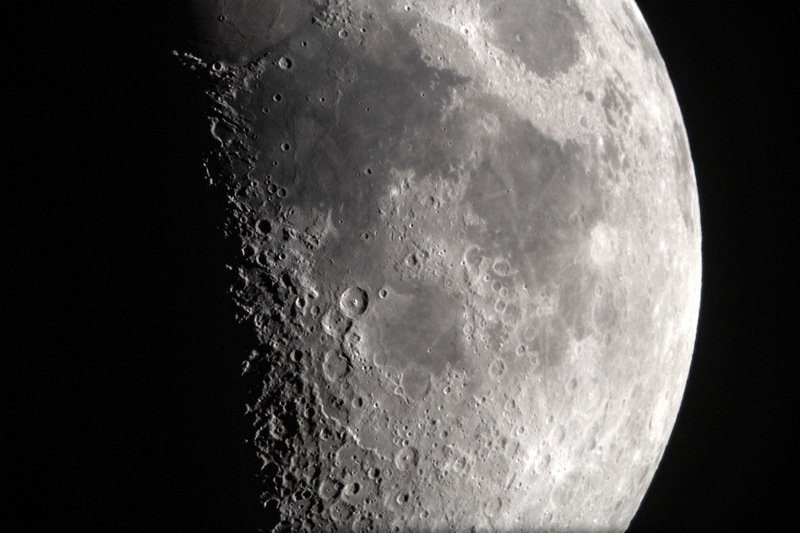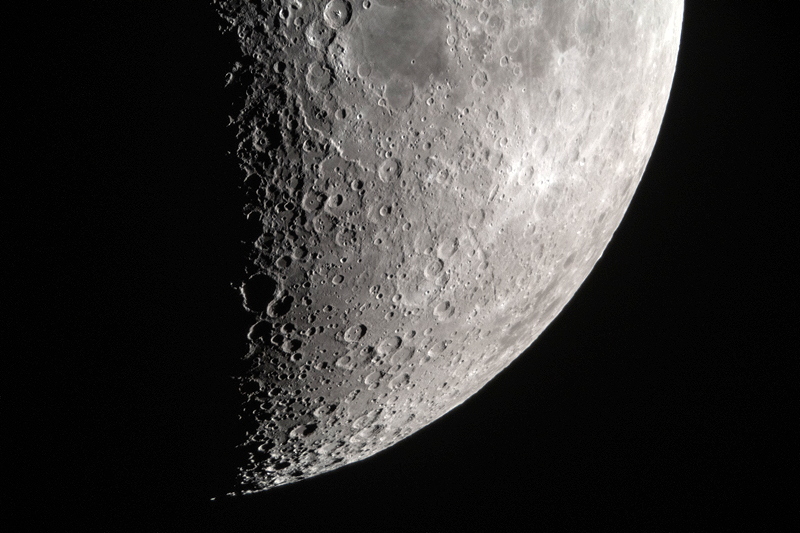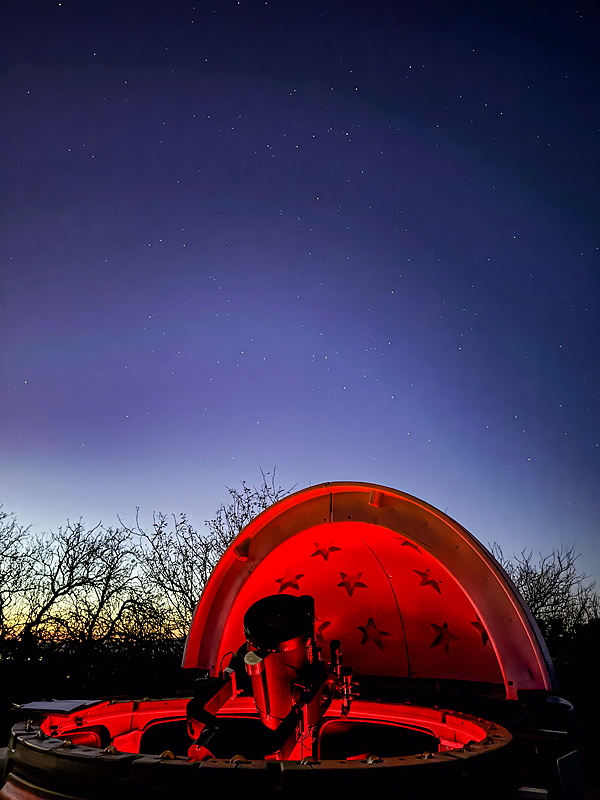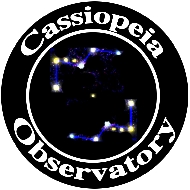Moon, Cassiopeia over Observatory
Posted: 16 February 2024
|
Open: Thursday, 15 February 2024, 1810 MST Temperature: 73°F |
Session: 1939 Conditions: Clear |
Equipment:
12" f/8 LX600 w/StarLock
2" 24mm UWA eyepiece
2" 2X Powermate
Camera:
D850 DSLR
iPhone 15 Pro Max
SYNCed the observatory clock to WWV time signals.
1816 MST: Dome OFF (onto the PZT).
1817 MST: LX600 ON, StarLock OFF, High Precision OFF.
Viewed Jupiter, 102X. Three of the Galilean Moons were visible in the bright sky.
Viewed the Moon, 102X.
Mounted the D850 DSLR at prime focus. Took this image (1/250sec, ISO 400, White Balance Auto).

Added a 2X Powermate to the image train and took these images (1/320sec, ISO 1600, White Balance Auto).



Removed the camera and did some lunar observing, 203X. There were many nice sights.
Viewed Jupiter again, 203X. All four Galilean Moons were now visible in the darker sky.
Viewed the Trapezium stars in M42 (Orion Nebula), 203X. Then removed the 2X Powermate and viewed M42, 102X. Some nebulosity was visible in the moonlit sky.
I stepped outside of the observatory to put the Dome back on. The constellation of Cassiopeia was looking down on Cassiopeia Observatory. So I just had to take a photograph. This handheld iPhone 15 Pro Max was taken with the Camera app (Night Mode, 3 seconds, 1X lens) and shows Cassiopeia at the top. Tilt your head to the left and you'll see the "M" shape (which, of course, stands for Mike).

1911 MST: Dome ON.
1913 MST: LX600 OFF.
|
Close: Thursday, 15 February 2024, 1919 MST Temperature: TBS°F |
Session Length: 1h 09m Conditions: Clear |
Comments are welcome using Email. Please read the Email Etiquette guidance.
Cassiopeia Observatory Home Page
Copyright ©2024 Michael L. Weasner / mweasner@mac.com.
URL = http://www.weasner.com/co/Reports/2024/02/16/index.html
